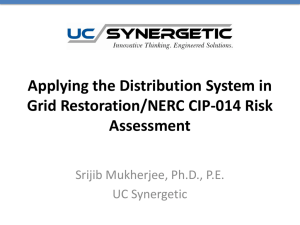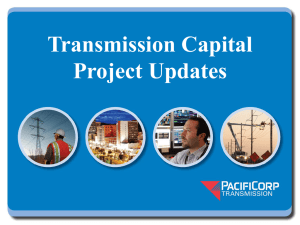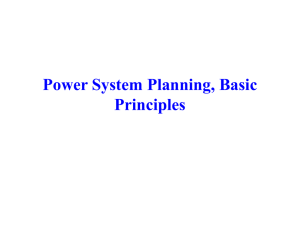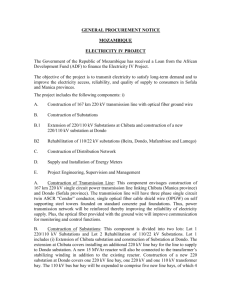Wei Sun - PEEC Workshop - Electrical and Computer Engineering
advertisement
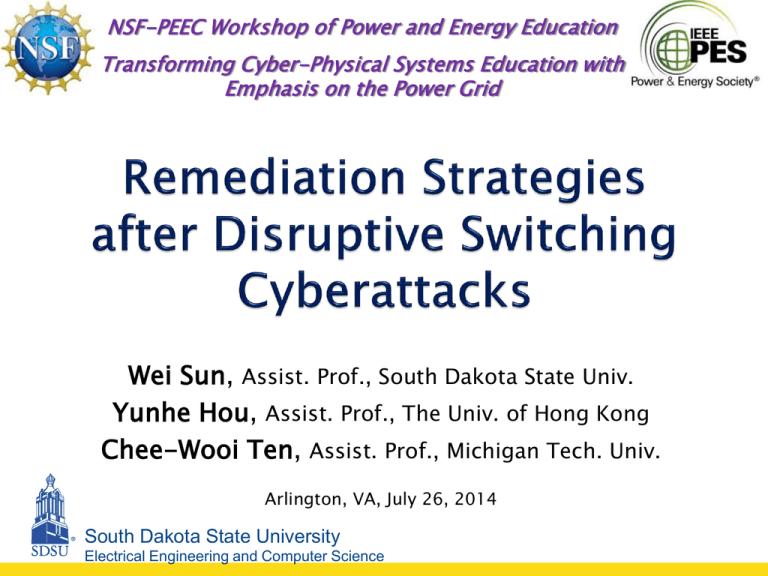
NSF-PEEC Workshop of Power and Energy Education Transforming Cyber-Physical Systems Education with Emphasis on the Power Grid Wei Sun, Assist. Prof., South Dakota State Univ. Yunhe Hou, Assist. Prof., The Univ. of Hong Kong Chee-Wooi Ten, Assist. Prof., Michigan Tech. Univ. Arlington, VA, July 26, 2014 South Dakota State University Electrical Engineering and Computer Science A four-layer system, including cyber-vulnerability evaluation, emergency control, restoration, and planning, is designed to provide remediation strategies for protecting and restoring power systems after the attack incidents. A strategic defense system will be developed to enhance system reconfigurability and survivability from disruptive switching actions by a cyber intruder. Joint education and research activities among three universities in U.S. and China. South Dakota State University Electrical Engineering and Computer Science 2 Strategic Defense System CyberVulnerability Evaluation Emergency Strategy Restoration Strategy Planning Strategy Identify vulnerable components Defensive emergency control Real-time adaptive actions Optimal cyber- syst. planning South Dakota State University Electrical Engineering and Computer Science 3 IEEE 30-bus system is used for illustration of the strategic defense system Cyber-Vulnerability Evaluation provides the list of substations 1. with high risk: substations 9, 12, 25, 27. Emergency Control provides optimal defensive actions to reduce the probabilities of being intruded successfully. Restoration Strategy provides optimal restoration actions, and identify more vulnerable substations 12 and 27. Planning Strategy provides the optimal planning to minimize the risk of potential attacks subject to available resources. 2. 3. 4. Compration of Generation Capability Curves 4 350 2.9 Comparison of Two Vulnerbale Substations x 10 Substation 12 Substation 27 2.8 Equivalent loss of load 59 58 250 200 150 100 Base Case,Lose Sub 9,Lose Sub 25 Lose Sub 12 Lose Sub 27 50 57 Optimal Value System Generation Capability (MWh) 300 Generation Output (MW) 0 2.7 2.6 2.5 2.4 2.3 2.2 2.1 2 1.9 0 5 10 15 Possible Strategies 20 25 30 Restoration Time (pu) 35 40 45 50 1 2 3 4 5 Substation Restored Time (hr) 6 South Dakota State University Electrical Engineering and Computer Science 4
